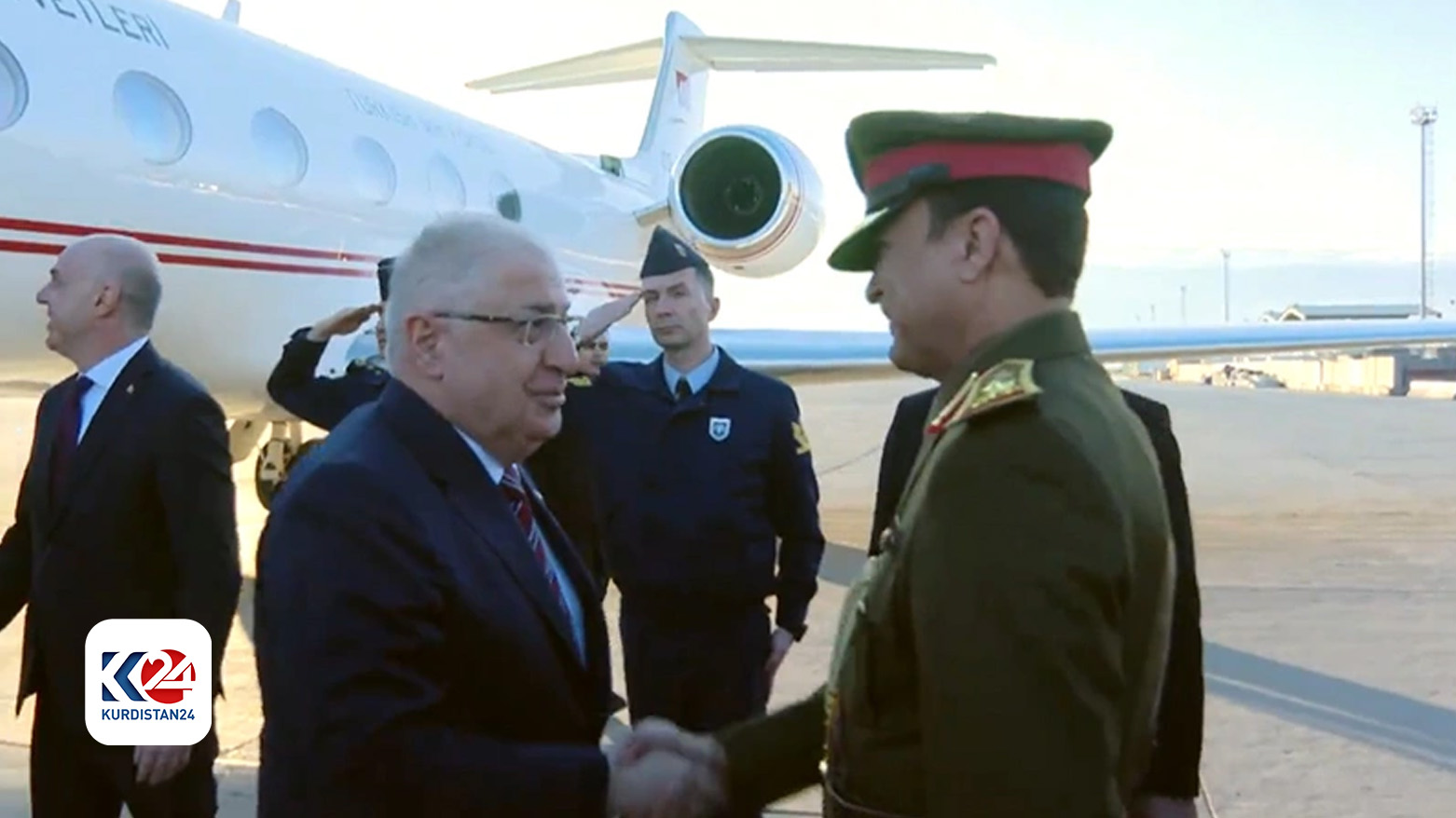Turkish defense minister arrives in Baghdad
The visit comes days after the head of intelligence, Ibrahim Kalin, similarly visited the country and met with Iraqi and Kurdistan Region officials.

ERBIL (Kurdistan24) – Turkish Defense Minister Yaşar Güler along with Chief of the Turkish General Staff Metin Gürak arrived in the Iraqi capital Baghdad early Tuesday.
The Turkish minister is expected to discuss several security issues with Baghdad officials, particularly at the border areas.
The ministry did not elaborate further details on the meetings the Minister Güler is expected to hold in Baghdad.
The visit comes days after the head of intelligence, Ibrahim Kalin, similarly visited the country and met with Iraqi and Kurdistan Region officials.
Turkey and Iraq have had rocky relations in the past decades, largely due to the presence of the Kurdistan Workers’ Party (PKK) which has been fighting Ankara since the mid-1980s.
Millî Savunma Bakanı Yaşar Güler, beraberinde Genelkurmay Başkanı Orgeneral Metin Gürak ile çeşitli temaslarda bulunmak üzere Irak’ın başkenti Bağdat’a gitti.#MillîSavunmaBakanlığı #YaşarGüler pic.twitter.com/3t0HQYVvJw
— T.C. Millî Savunma Bakanlığı (@tcsavunma) February 6, 2024
Iraq has condemned Turkish attacks on suspected PKK members and positions inside its territory, citing the repeated aerial attacks as a fringe on its sovereignty.
Bolstered by its advanced drone industry, Turkey has ramped up its drone strikes in recent years, particularly in the urban centers of Iraq and the Kurdistan Region, to target suspected PKK positions.
Similar strikes in the past have also been blamed on Turkey, which have resulted in casualties, including senior PKK militants.
Kurdistan Region officials regularly call on Baghdad, officially in charge of border security affairs, to prevent the insurgents and foreign militaries from engaging in hostilities within its territory. Officials have voiced concerns about increased militia forces presence in the area.
Much of the conflict has been fought in the border areas of the Kurdistan Region, which has endangered the civilian population.
